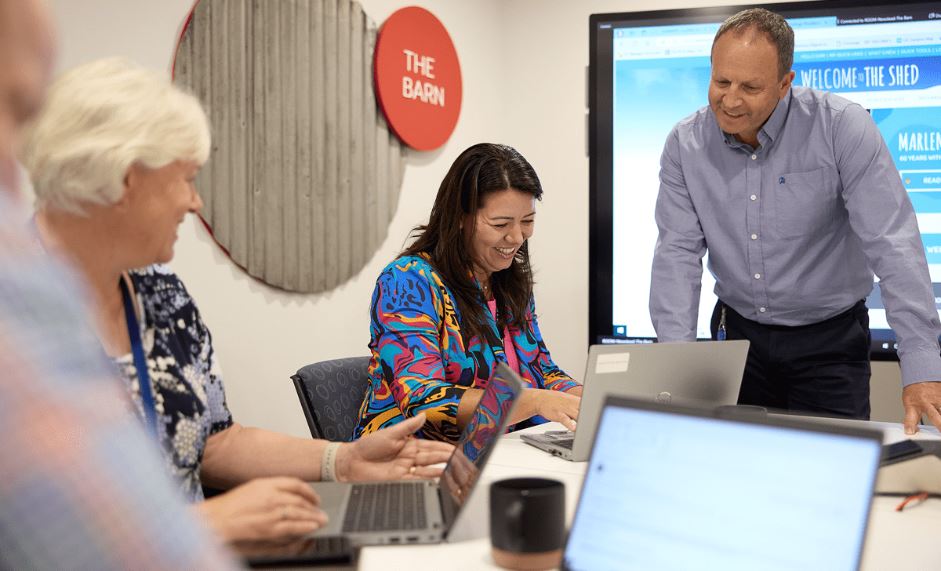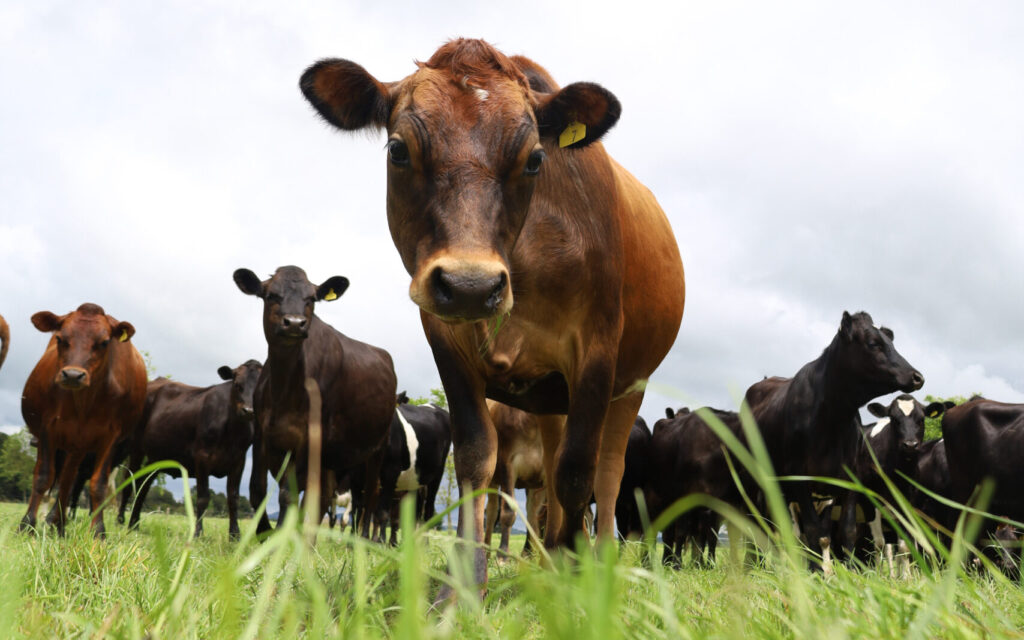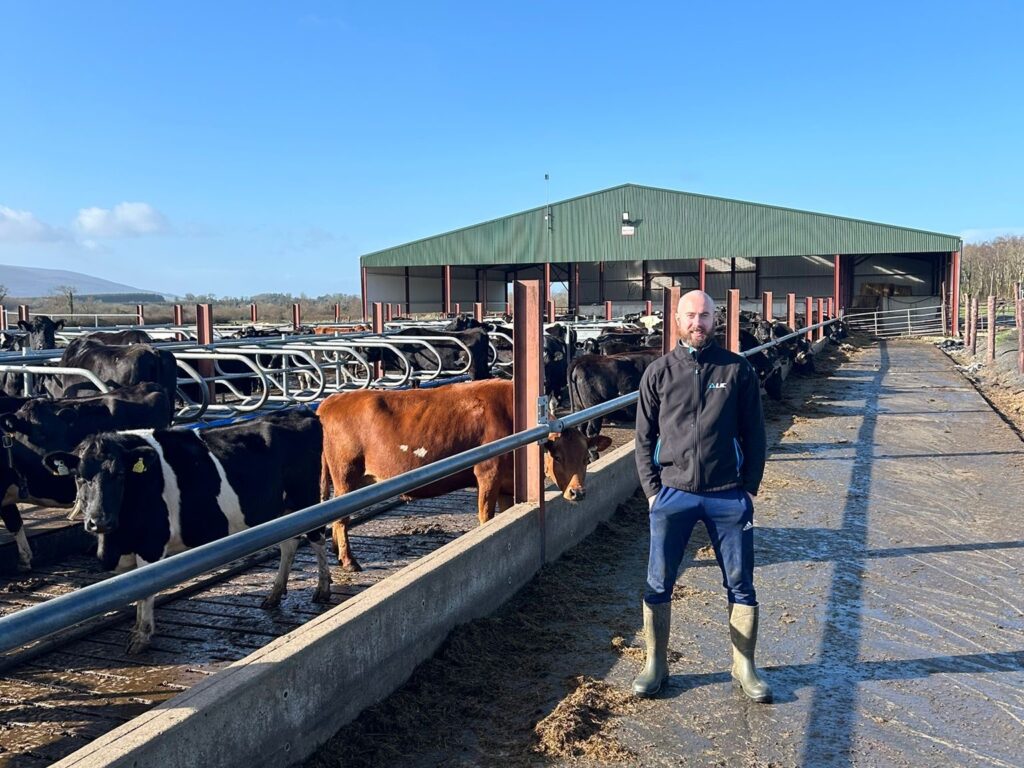Agricultural Science at UCC (CK412) was established in 2019, initially with an entry limit of 25 students which has now grown to over 30. It is co-delivered through an integrated partnership with our expert colleagues (research and extension) at Teagasc (primarily Teagasc Moorepark but incorporating experts throughout the organisation, including at Clonakilty Agricultural College).
The result is a unique and unparalleled curriculum combined with several unique selling points that set CK412 apart. We set out to attract Ireland’s brightest and best students seeking to pursue the study of Agricultural Science at the third level, and we are fortunate to be achieving just that.
The programme is proving to be a resounding success having quickly earned a very positive reputation – based on student satisfaction, external feedback, and consistent high demand. Our graduates are in high demand right across the industry and over time are set to assume leadership roles across the Agri-Food sector in Ireland – primary producers, research, education, consultancy, banking, milk processors, breeding companies and so on.
Internships with LIC
Through my research interests in the genetic improvement of Irish dairy cattle, I have enjoyed a longstanding relationship with LIC in Ireland. It was during one of my many catch-ups with LIC’s, Mark Ryder that the opportunity to undertake industry placement abroad with them in New Zealand came to fruition. And it’s proved to be an amazing opportunity.
I’m sure you will have gathered that from the students who have taken part.
The students who have travelled as part of this opportunity have not been disappointed. They’ve been treated very well and enjoyed a fruitful learning experience.
All our students undertake a total of 29 weeks of paid work placement during semesters two and three (January to August) of their third year – 17 weeks with one of Ireland’s highest performing dairy farmers followed by 12 weeks in the industry – both tailored to individual student interest, previous experience, and ambition.
Firstly, the students are placed with the best, often award-winning dairy farmers during the busiest time of the dairy farming calendar. During this time, the students will deepen their knowledge, experiencing all the aspects of the day-to-day management of an intensive, highly efficient, profitable, and sustainable dairy farming operation.
Topic-specific block release days, hosted by key experts, complement the placements and help students get the most out of their farm work placement. Later in the summer, there is an opportunity to work alongside key industry stakeholders and agribusinesses. This opportunity is particularly important for providing an essential transition from
university to the professional work environment, connecting our talented, well-educated, and ambitious undergraduates with leading Irish and International agri-food companies seeking to employ Ireland’s future industry leaders.”
Hear from the students
Michaela Shorten
 “I’m a final year agricultural science student at University College Cork, Ireland, and joined LIC’s R&D team for 12 weeks between June and August 2024 as part of my university placement.
“I’m a final year agricultural science student at University College Cork, Ireland, and joined LIC’s R&D team for 12 weeks between June and August 2024 as part of my university placement.
I worked alongside Senior Scientist Dr Lorna McNaughton and the team on the low methane emitting cattle project. I spent the majority of my time working in the methane measurement facility on LIC’s Tauwhare Farm, in the Waikato region. The part of the trial that I was focused on was measuring the methane emissions and feed intake of 398 yearling dairy heifers. The heifers were divided into 4 groups with each group entering the trial for a period of 40 days. I was involved with two rounds in the trial – round’s two and three. The methane emissions are measured in two ways, using a GreenFeed machine that the animals can access 5 times a day and breathe into with pellets luring them in. The other method is using the Cattle AgPAC chamber, where the heifers spend 45 minutes in the sealed chamber in weeks four and six of the trial.
Assisting with day-to-day animal care and data collection, I also got the opportunity to take charge of the methane facility for two weekends. Animal care duties included
animal weighing, bedding and feeding, identification of health issues and assisting with animal health treatments. Data collection included monitoring heifer feed intakes, rumen fluid collection, plus collecting and monitoring gas measurements from the AgPAC Chambers.
I spent one or two days a week in the head office in Newstead where I analysed feed and weight data from the ongoing methane trial and worked on my university report. I also had the opportunity to visit the LIC Innovation Farm which was intriguing.
I’m sincerely grateful for my time spent with LIC and the opportunity to work alongside the R&D staff. It was such an amazing and rewarding experience to see first-hand the hard work and dedication that happens in the background of research trials. Moving forward, I’m committed to advancing my knowledge and skills in the field of ruminant nutrition and reproduction through further study.”
Sinead Johnson
 “My time spent with LIC was a huge stepping stone in my future career in agriculture and I hope to return some day.
“My time spent with LIC was a huge stepping stone in my future career in agriculture and I hope to return some day.
I’m a final year agricultural science student at University College Cork (UCC) Ireland. I come from a dairy farm background and have had the privilege to gain hands-on experience working with livestock over the years. In the third year, we are required to complete a 12-week industry placement alongside a 17-week farm placement.
I’d been to New Zealand for the previous calving season and was working on a dairy farm in Taranaki that had heifers in an embryo programme. This was my first introduction to LIC and sparked my interest in the vast world of genetics.
I started my internship in May 2024 and ended it in August 2024. I was working under the supervision of LIC bull acquisition
manager Kelli Buckley and the rest of the team in Livestock Selection. I was working on various tasks, all of which gave me the opportunity to see many different aspects of the company.
Some of my tasks included, TOP inspections, sire selection, bull inspections as part of the sire proving selection, bull to dam matings, assisting with the methane trial at LIC’s Chudleigh research farm in Tauwhare and so much more.
Starting this internship with LIC opened many doors for me. I always had the mindset that I’d return home to farm after my degree and felt that a job in the industry sector would not be suited to me as I’m so ‘hands on’. However, since the internship, and with the encouragement of Kelli and my other fellow colleagues, I’m considering continuing further education from May 2025.”



